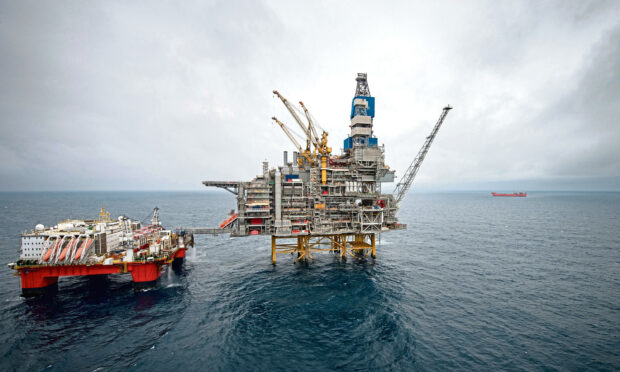Banks played a crucial role in persuading the UK Government to change its mind over the windfall tax on North Sea oil and gas firms, it emerged today.
Exchequer Secretary to the Treasury Gareth Davies told The Press and Journal ministers and officials had listened not just to demands for change from the offshore energy industry, but also to the financial services sector.
Mr Davies said: “We have been actively engaged with the (oil and gas) industry and also the financial services industry.
“Clearly, there is a need for certainty whenever oil and gas prices reduce to more normal levels – that is a perfectly reasonable thing to ask.
“The banks said they needed that certainty for their (investment) modelling.”
The North Sea industry is currently taxed at 75% of profits, including the 35% energy profits levy, or windfall tax, which was introduced last year amid surging commodity prices.
But the government now says that if oil and gas prices fall for a sustained period the tax rate for oil and gas companies will return to 40%.
For taxation to drop, average prices need fall to or below $71.40 per barrel for oil and £0.54 per therm for gas in two consecutive quarters.
A price floor for the windfall tax has been a key ask of North Sea oil and gas firms since the levy was reformed in November and upped to 35%.
Windfall tax change and existing allowances offer firms ‘incentives’
Mr Davies said: “We have listened to the industry. Our new energy security mechanism provides them with some certainty so they can make more accurate risk assessments.”
Asked whether is would help any of the new projects currently in the North Sea pipeline – such as Rosebank and Cambo – get across the line, he said existing investment allowances tied to the windfall tax and the new price floor would deliver incentives.
“I look forward to more engagement with the sector over the coming weeks and months, he added.”
Levy widely seen as ‘reasonable’
Mr Davies was in Aberdeen to speak to oil and gas firms about the windfall tax change.
He also told the P&J introducing the levy last year to tax oil and gas firms’ “exceptional” profits had raised billions of pounds to help people struggling with their energy bills.
“Most people believe it is a reasonable thing to do,” he added.


Conversation